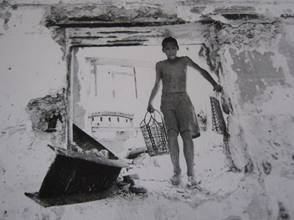
The Lourdes Base, the extinct Soviet Center of Radio-electronic Espionage, that existed in Cuba during the Cold War, was installed in what had been the Torrens Juvenile Detention Center at the time of the Republic, a juvenile reformatory for minors. Today, instead, it is the University of Information Sciences (UCI): returned to its educational function after its military adventure.
Much further out, in Bejucel, in the decade of the fifties, Father Ismael Testé realized a dream that had long prevented him from sleeping peacefully: the creation of a Center (The City of Children), where homeless children and youth or those with serious problems with their families, could live and receive instruction and civic and moral education, to prevent their becoming inmates at the Torrens Prison.
The idea, embraced by the public after it was divulged in the media, counted on monetary support from public collections and from businesses and stores, who cooperated in it, both economically as well as with donations of materials and equipment.
Father Testé’s City of Children, as it was popularly called, grew and developed, and became a reference point for something noble and right, until the arrival of the new regime which, as it did with all educational institutions both religious and private, decided that it was going to be the only one responsible for the education and development of the new citizens: and these it called “The New Man.”
Shelters, classrooms, workshops, sports camps and other facilities fell into disuse, become the staff of a Soviet missile division in 1962 and, after the October Crisis, in Cuban military installations, which used it, and built and enlarged it, according to their own interests.
Unlike Torrens, the place has not yet returned to its original function: the education and training of young people and children as citizens. The dream of the Father Ismael Testé, shaped by voluntary contributions from citizens, was cut short and disappeared, and those who were his disciples were sent out to different centers, losing the ties initially created, lost in the maelstrom of the years.
Father Testé, like many other priests, also emigrated from Cuba, forced by political events, and the burden of intolerance. Today, at least here in Cuba, neither he nor his work are ever mentioned: as if he never existed. The City of Children was a beautiful dream made reality, by the will of a priest and thousands of Cubans. It is not just that the memory of it should be diluted.
August 18 2012
